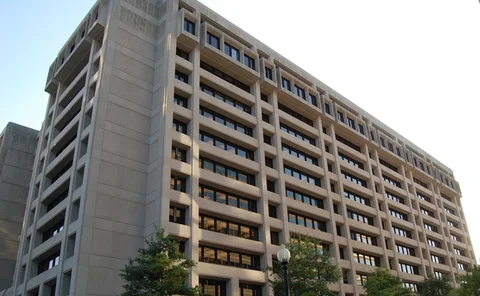International Monetary Fund (IMF)
IMF recommends Colombia improve policy communication
Fund considers the central bank has further room to lower interest rates
Tunisia raises rates by 75bp to tackle inflation
First hike under new governor comes as prices rose year-on-year by 7.1% in February
IMF paper looks at how inflation anchoring affects growth
Authors examine whether low inflation and anchoring inflation are positive for growth
Central bankers must leave their ‘ivory towers’ – South African governor
Popular support is needed, says Central Banking’s governor of the year
Measuring Venezuela’s hyperinflation
Steve Hanke discusses how economists can make use of high-frequency exchange rate data to track rapid price movements in Venezuela
IMF official backtracks on Kenya funding comments
Mikkelsen says Kenya has continued to have access to IMF resources “subject to policy understandings”
IMF stresses communication’s role in fostering stability
Neglecting its importance can lead to adverse reactions, such as misinterpretation of policies
Reserve managers made financial crisis worse for central banks – paper
Synchronised withdrawal of funds from commercial banks made central bank stabilisation efforts “more difficult”, IMF paper says
NY Fed paper measures global capital flow pressures
The authors’ method allows them to estimate how sensitive countries are to changes in global risk aversion, as well as overcoming problems with capital flow data
People: Tunisian governor resigns; EFSF appoints chairman
Governor Ayari quits after Tunisian prime minister initiated the process to replace him; EFSF picks new chairman; European Commission proposes new chief for Systemic Risk Board
Brexit ‘surprises’ could delay rate hikes, IMF says
If negotiations affect wage growth or “depress demand”, the BoE could make monetary policy more expansionary, staff say
BIS and IMF offer joint course for financial supervisors
Lagarde and Carstens say the two organisations will increase joint efforts at capacity-building
Fijian authorities say there are no plans to lift capital controls
IMF warns not removing controls could harm foreign investment; central bank says it will review controls with respect to the level of foreign reserves
Sudanese central bank weakens foreign exchange rate for banks
Official rates remain well above black market prices, local reports say
IMF urges Indonesian authorities to focus on policy transmission
Interest rate caps and limited banking competition have left market interest rates “slow to adapt” to changes in monetary policy
Lower growth follows credit booms with high-yield lending – paper
Lending standards in bond markets track banks’ credit standards
Governor of the year: Lesetja Kganyago
Kganyago has defended and enhanced the Sarb’s reputation as an independent and well-governed institution against all threats – despite a turbulent political and economic backdrop
Global influence on local financial conditions is stable, research finds
Share of financial fluctuations caused by global factors has not markedly risen in last two decades
Income convergence in reverse among original euro members, research says
Fall in income disparities halted soon after 2002 and started to increase after financial crisis
IMF welcomes reform progress in Egypt
A flexible exchange rate and tighter policy have helped stabilise the economy
Central banks should not be underestimated – DTCC chief
Michael Bodson says central banks will always find a way to deal with crises, even without interest rates at their disposal; Hélène Rey says interconnectedness of system is a risk
Economics in central banking: Alberto Cavallo and Roberto Rigobon – Billion Prices Project/PriceStats
Through a vast and ongoing data-collecting exercise, PriceStats has helped central banks overcome many of the drawbacks inherent in traditional inflation series
Davos experts weigh risks of future crisis
High debt levels, a rise in real interest rates and China are on the agenda for the panellists, who believe another financial crisis is inevitable
IMF chief economist warns against ‘complacency’
Recent economic upturn should not be viewed as “new normal”, Obstfeld says, arguing policymakers should be looking to shore up defences























